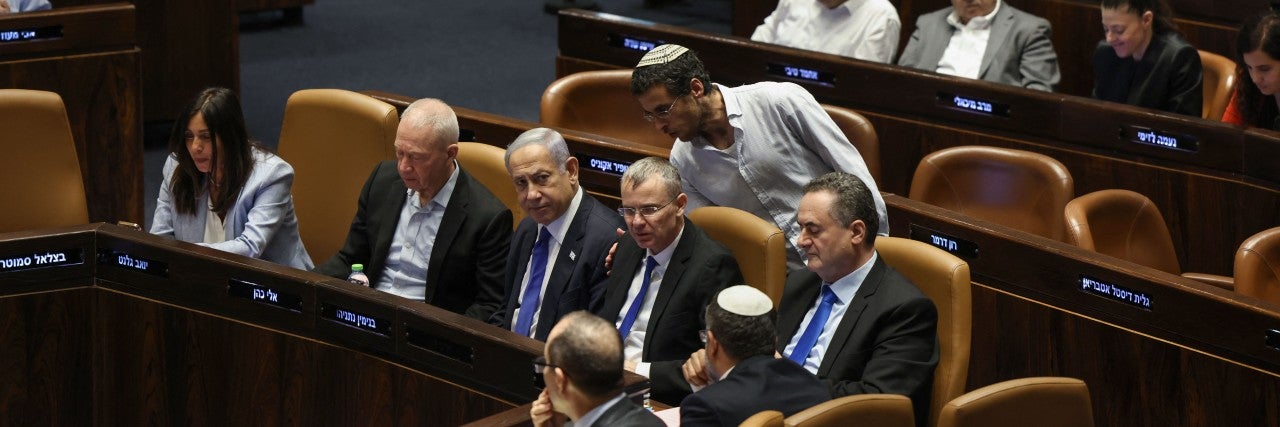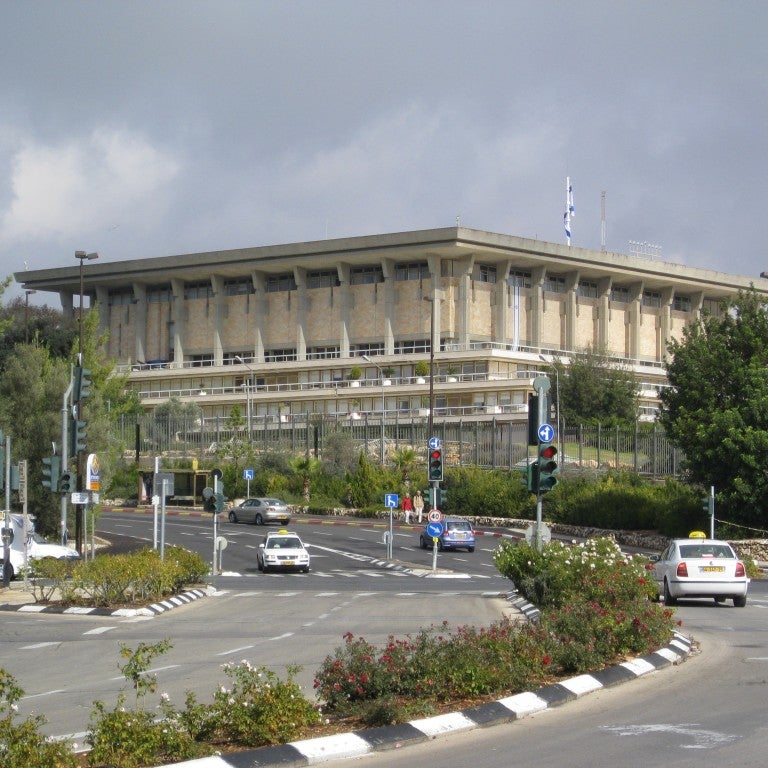July 28, 2023
The Reasonableness Standard Bill adopted by the Knesset this week, with the support only of members of governing coalition parties, will – if it survives legal challenges – alter the balance of power between the judicial and executive and legislative branches of government. Elected officials will have fewer restraints on their actions. The High Court of Justice will retain other oversight tools, however.
Obituaries for Israeli democracy are premature, and simplify a complex and evolving situation. While the unilateral way in which the new law was passed was unnecessarily divisive, Israel’s democracy continues to be on full display as Israelis fill the streets in protest, and hope remains for forging a national consensus on future legislation.
Now as the Knesset faces a two-month break, it’s up to government officials to try to overcome the tensions and discord that roil every democratic system, and come back ready to compromise. That’s how a democracy works.
“People are out there, they're motivated, they're active,” said AJC Chief Policy and Political Affairs Officer Jason Isaacson. “We're very proud of the fact that with free expression, and a rambunctious free press, Israelis have no inhibition whatsoever about stepping forward to try to affect the policies of their government. There will also be other elections in Israel. And if the country veers too far in one direction or another, I have full confidence that the Israeli public, with its strong commitment to liberal democracy, will pull it back.”
Here is a breakdown of Israel’s government and how the new Reasonableness Standard Law could affect the country’s democratic system.
Is Israel still a democracy?
In short, yes. The Reasonableness Standard Law focused on the High Court’s ability to overturn some government decisions. It is one of a package of judicial reforms sought by the current Israeli government, which include the Knesset’s ability to override court decisions and take a stronger role in the selection of judges to the High Court.
While Israel remains a robust parliamentary democracy with a multi-tiered system of government including an independent and powerful judiciary, opponents of the proposed judicial reforms fear that the governing coalition’s efforts will erode the power of the High Court, weakening its independence, and undercutting Israel’s standing as a liberal democracy.
Israel's democratic values encompass free and fair elections, the rule of law, protection of human rights, pluralism, tolerance, separation of powers, freedom of the press, civil liberties, citizen participation, accountability, transparency, and equality before the law. These principles are fundamental to Israel's political system and are enshrined in the country’s Declaration of Independence, ensuring the rights and liberties of its citizens and fostering a diverse and engaged society.
Do other democracies use the reasonableness standard?
Different countries have their own legal systems and approaches to reviewing administrative decisions, and the standards for judicial review can vary significantly. There are democracies that do, and there are democracies that do not, use the reasonableness standard for judicial review
Some democracies use a more stringent standard of judicial review known as the "strict scrutiny" standard. Strict scrutiny is often applied in cases involving fundamental rights, such as freedom of speech, religion, or equal protection under the law.
In the United States, for example, the strict scrutiny standard is applied in cases involving certain fundamental rights protected by the Constitution, such as the First Amendment (freedom of speech) or the Fourteenth Amendment (equal protection).
However, there are other democracies that have principles similar to the "reasonableness standard" in their administrative law or judicial review processes. These principles, although not explicitly labeled as "reasonableness standard," involve reviewing administrative decisions for rationality, reasonableness, and proportionality. Examples include the "Wednesbury unreasonableness" test in the United Kingdom, the "unreasonableness test" in Australia, and the principle of "proportionality" in the European Union, among others. These standards ensure that administrative decisions are within a range of reasonableness and aligned with their intended objectives.
The use of the reasonableness standard for judicial review is not universal, and different democracies may use various other standards. The specific standard used for judicial review can vary based on the country’s unique legal system, constitution, and legal traditions.
Why do opponents of the reasonableness law believe it will weaken democracy?
Opponents argue that reasonableness, which as noted above is often used in other democracies, is an important pillar of democracy and a key check on power of the legislative and executive branches. They contend that the fact that Israel lacks a written constitution with clearly laid out checks and balances, such as is found in the U.S. Constitution, makes such a standard more important.
One of the primary concerns of opponents of the Reasonableness Standard Law is that it will make it easier for the government to dismiss senior civil servants, such as those tasked with heading critical law enforcement agencies like the attorney general, the state attorney, and the police commissioner. Opponents argue that this could subvert the rule of law and remove a key check on power used by the judicial branch over the executive and legislative branches.
Why do proponents of reasonableness law say it will strengthen democracy?
Proponents of the law have argued for years that the High Court, which consists of unelected judges, has exerted too much power and has overturned laws and decisions by the duly elected members of the legislative and executive branches (which in Israel’s parliamentary system, are largely one and the same). Therefore, reforms such as the removal of the reasonableness standard are designed to rein in the High Court’s power and restore balance between the judicial, legislative, and executive branches.
Proponents also argue that the High Court has other tools to check the power of the executive and legislative branches. One important tool is administrative law, which regulates government agencies' operations and procedures. It allows citizens to challenge government actions if they believe they have been harmed by them. This helps ensure the government follows rules and principles that limit its authority and protect citizens' rights.
What is AJC’s take?
AJC expressed its profound disappointment over the passage of the Reasonableness Standard Law in Israel.
The new law was pushed through unilaterally by the governing coalition amid deepening divisions in Israeli society as evidenced by the hundreds of thousands of Israelis who have taken to the streets. Of particular concern to AJC, the continued effort to press forward on judicial reform overhaul rather than seeking compromise has sown discord within the Israeli Defense Forces at a time of elevated threats to the Jewish homeland and has strained the vital relationship between Israel and Diaspora Jewry.
From the outset of the judicial reform process, AJC has expressed our firm belief that any changes to Israel’s judicial system should result from a deliberative, inclusive process that upholds the democratic values of maintaining checks and balances, respecting minority rights and civil liberties, and preserving essential judicial independence.
Click here to read the full statement.





